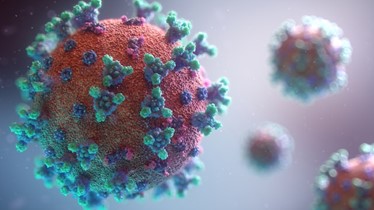Sushil Gupta, a Board-Certified Physician in Pulmonary Medicine from Woodbridge, NJ provides comprehensive expertise in sleep disorders, pulmonary medicine, and critical care. In the following article, Sushil Gupta discusses the enduring effects of COVID-19 on pulmonary health, particularly focusing on Long COVID Syndrome. He also touches on the intricate connection between the virus and long-term pulmonary complications, such as sleep apnea and their potential impact on hypertension, heart attacks, and strokes.
The COVID-19 pandemic has not only posed immediate health challenges to individuals around the world but has also brought to light many long-term health implications for those affected. Among the most concerning aspects is the emergence of Long COVID syndrome, where individuals continue to experience lingering symptoms weeks or even months after recovering from the initial infection.
This condition has significantly impacted various aspects of daily life, ranging from persistent respiratory issues to neurological symptoms and fatigue that can persist for an extended period. Understanding the complexities of is crucial for healthcare professionals as they navigate treatment strategies and support for affected individuals.
Sushil Gupta MD Explains More About Long COVID Syndrome
Long COVID, officially known as Post-Acute Sequelae of SARS-CoV-2 infection (PASC), refers to a condition where individuals experience persistent symptoms long after the acute phase of COVID-19 has resolved. While the exact mechanisms are still under investigation, it is believed that it may involve a combination of viral persistence, immune dysregulation, and prolonged inflammation in various organ systems, including the lungs.
Impact on Lung Function
One of the most significant concerns associated with Long COVID is its impact on respiratory health. Many individuals report ongoing respiratory symptoms, such as:
- Persistent Shortness of Breath: Sushil Gupta MD says that difficulty breathing or shortness of breath, even during mild physical activity, is a common complaint among patients.
- Cough and Chest Discomfort: Some individuals continue to experience a persistent cough, chest tightness, or discomfort, which can significantly impact daily activities and quality of life. These symptoms have been described as similar to those of COPD.
- Fatigue and Exercise Intolerance: Lung involvement can lead to fatigue and exercise intolerance, making it challenging for patients to regain their pre-COVID level of physical fitness.
Sushil Gupta says that studies have shown that Long COVID patients may exhibit abnormalities on pulmonary function tests, including reduced lung capacity, impaired gas exchange, and abnormal lung mechanics. These findings underscore the need for targeted interventions to support lung recovery and alleviate symptoms.

Rehabilitation Strategies for Long COVID Patients
Managing this condition requires a comprehensive approach that includes pulmonary rehabilitation tailored to the specific needs of each patient. Key components of pulmonary rehabilitation include:
- Exercise Training: Gradual and supervised exercise programs can help improve cardiovascular fitness, muscle strength, and endurance while addressing exercise intolerance and fatigue.
- Breathing Exercises: Techniques such as diaphragmatic breathing, pursed lip breathing, and inspiratory muscle training can assist in improving respiratory muscle function and enhancing breathing efficiency.
- Education and Support: Providing patients with education about their condition, coping strategies, and self-management techniques is crucial for empowering them to actively participate in their recovery.
- Psychosocial Support: Post-infection recovery can have a significant psychological impact due to ongoing symptoms and uncertainty about when you’ll start feeling better. Sushil Gupta MD says that psychosocial support, including counseling and support groups, can help patients manage stress, anxiety, and depression.
Ongoing Research and Management Efforts
Research efforts are ongoing to better understand the underlying mechanisms the disease and develop effective management strategies. Areas of current investigation include:
- Immunological Factors: Studying the immune response to SARS-CoV-2 infection and how it contributes to persistent symptoms.
- Viral Persistence: Investigating whether the virus persists in certain tissues, including the lungs, and its implications for long-term health.
- Treatment Trials: Clinical trials are evaluating potential therapies, including anti-inflammatory drugs, immunomodulators, and rehabilitative interventions, to alleviate symptoms and promote recovery.
- Longitudinal Studies: Sushil Gupta reports that long-term follow-up studies are essential to monitor the progression of symptoms over time, assess recovery trajectories, and identify predictors of long-term outcomes.
Conclusion
The emergence of Long COVID syndrome has highlighted the complex and multifaceted nature of the virus’ impact on health. For individuals experiencing long-term pulmonary complications, comprehensive care that integrates medical management, rehabilitation, and psychosocial support is essential. By understanding the challenges posed by the infection and supporting ongoing research efforts, healthcare providers can better serve affected individuals and strive towards improving outcomes and quality of life.
Sushil Gupta concludes that as we continue to navigate the aftermath of the COVID-19 pandemic, prioritizing the needs of patients and advancing our knowledge of this syndrome will be crucial in developing effective strategies for prevention, management, and rehabilitation. Through collaboration across disciplines and ongoing engagement with patients, we can work towards mitigating the long-term health consequences of COVID-19 and supporting recovery for all those affected.









